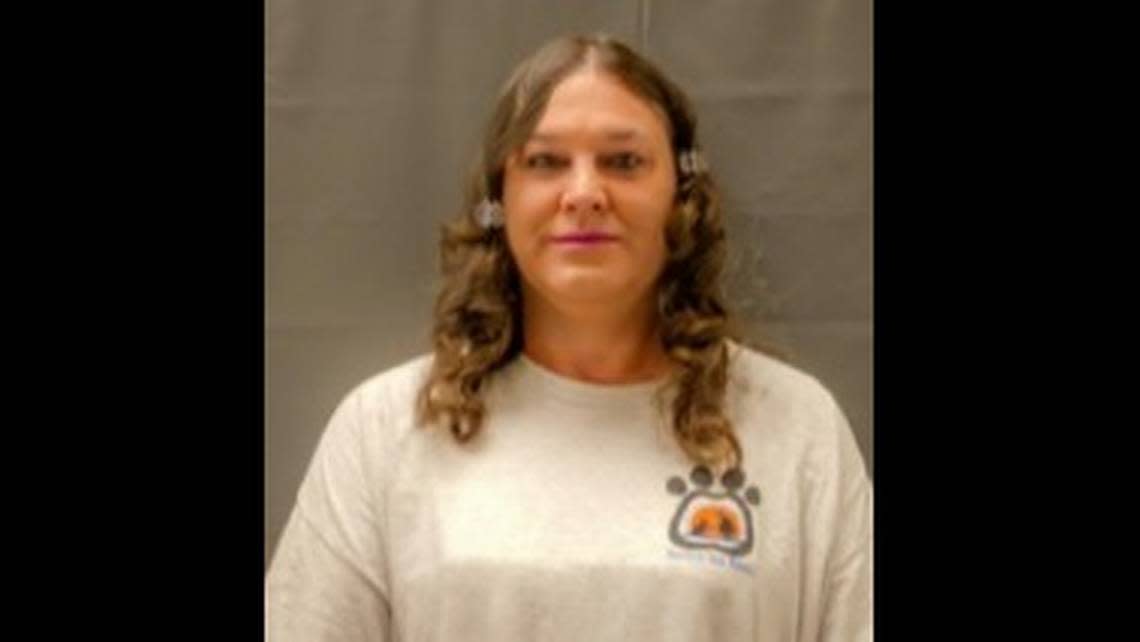Missouri has executed 94 people. Here’s what some of them said in their final statements
When Missouri executed a transgender woman on Tuesday for killing her ex-girlfriend in 2003, she apologized in a last statement.
Amber McLaughlin, convicted of murder in 2006 in St. Louis County, was the first openly transgender woman to die by execution in American history. She was 49.
“I am sorry for what I did,” she said in a two sentence statement. “I am a loving and caring person.”
The Star obtained the final statements of death row prisoners going back to the mid-1990s from the Missouri Department of Corrections.
Some prisoners sorrowfully apologized to their victims’ relatives or asked their gods to absolve them of their sins. One thanked his lawyers for trying to prevent his “night of tragedy,” while others told their families they will see them “on the other side.”
“In this room I seek the humble forgiveness of those who represent Mary Taylor,” Michael Roberts, who killed Taylor after a drug binge in 1994, said before he was executed in 2001. “As to my loved ones, I ask forgiveness for what I put you through. As to my executioners, I forgive you.”
Roberts, by then 27, said he wanted to be executed for killing his neighbor, a 56-year-old grandmother in Jennings, Missouri, and that his attorneys filed appeals against his wishes, the St. Louis Post-Dispatch reported at the time. His lawyers said he had been abused by his father and suffered from mental illness.
McLaughlin’s death on Tuesday marked the 94th execution in Missouri since the U.S. reinstated capital punishment in 1976. The state has since carried out the fifth highest number of executions, according to the Death Penalty Information Center in Washington, D.C.

Since 1990, at least eight prisoners put to death in Missouri maintained they were innocent in their last breaths, according to a Star review of last statements.
A ninth man said the death for which he was condemned was an accident, while another noted that an innocent person who is executed can’t be brought back to life.
“You’re killing an innocent man and you all can kiss my ass,” said Roy Roberts, who was executed in 1999 and maintained he did not murder a guard during a prison riot 16 years earlier.
More recently, Walter Barton was executed in 2020 despite calls for Gov. Mike Parson to impanel a board of inquiry to examine his innocence claim, as past governors have done in other cases. Barton was tried five times from 1993 to 2006 in the killing of an elderly woman near Springfield.
“Missouri and its agents have killed innocent men in the past,” began the final statement of another prisoner, Stephen Johns, who was executed in 2001 for the murder of a teenage gas station clerk. “I guess they think it (is) just part of doing business.”
Other prisoners, meanwhile, have acknowledged the “irreparable damage” they caused before their executions. A few kept their last recorded words on earth brief.
“Peace,” Robert Murray said as he laid on a gurney in the execution chamber, the St. Louis Dispatch reported in July 1995, and then gasped for air before more drugs were administered.
In September 2000, George “Baby” Harris was put to death for fatally shooting a man in Jackson County during what prosecutors described as an argument over machine guns. Harris’ lawyer tried to convince the jury that the shooting was committed in self-defense.
“Somebody needs to kill my trial attorney,” Harris’ entire final statement went, according to Missouri Department of Corrections records.
In the final statements of Missouri death row prisoners, Michelle Smith, co-director of Missourians for Alternatives to the Death Penalty, saw humanity — and a broken justice system.
A lot of the statements, she noted, talked about being remorseful, the human spirit and forgiveness.
Others claimed they had inadequate representation or were wrongfully convicted.
“It’s just endemic of the horrible state that Missouri, honestly, is,” Smith said.
Ralph Davis, executed in 1999, used his last moment to mouth words to his son, who was 10 when he was arrested more than a decade earlier. The son and his wife held hands and “cried as they watched” Davis die, according to an Associated Press reporter who was there.
“To my beloved children I want you to know I love you,” Davis, who was convicted of killing his own wife in 1986 and denied committing the crime, said in his final statement. “My body is gone but my spirit is with you. I’m just going to sleep. Love you, Dad.”
Others imparted tidbits of advice: “Try to enjoy life, it’s very precious,” Doyle Williams said in April 1996.
“Keep the faith and rock on!” Richard Zeitvogel said eight months later.
Missouri executed two people last year.
Carman Deck, 56, confessed to a 1996 double murder in De Soto. His death sentences were overturned and then reinstated three times.
“My hope is that one day the world will find peace and that we all will learn to be kind and loving to one another,” Deck said in a written final statement published by the Associated Press. “We all are a part of this journey through life, connected in every way. Please give love, show love, BE LOVE!”
In 2005, Kevin Johnson killed a St. Louis area police officer. His attorneys tried to stop the execution, arguing that Johnson’s trial had been “infected” by racism.
Like some other death row prisoners, the 37-year-old declined to write a last statement. But in journal entries shared with The Star, he wrote, “Although my fight is over, the fight for this cause is never dying. Continue to stand up to racism. Continue to change the narrative.”
